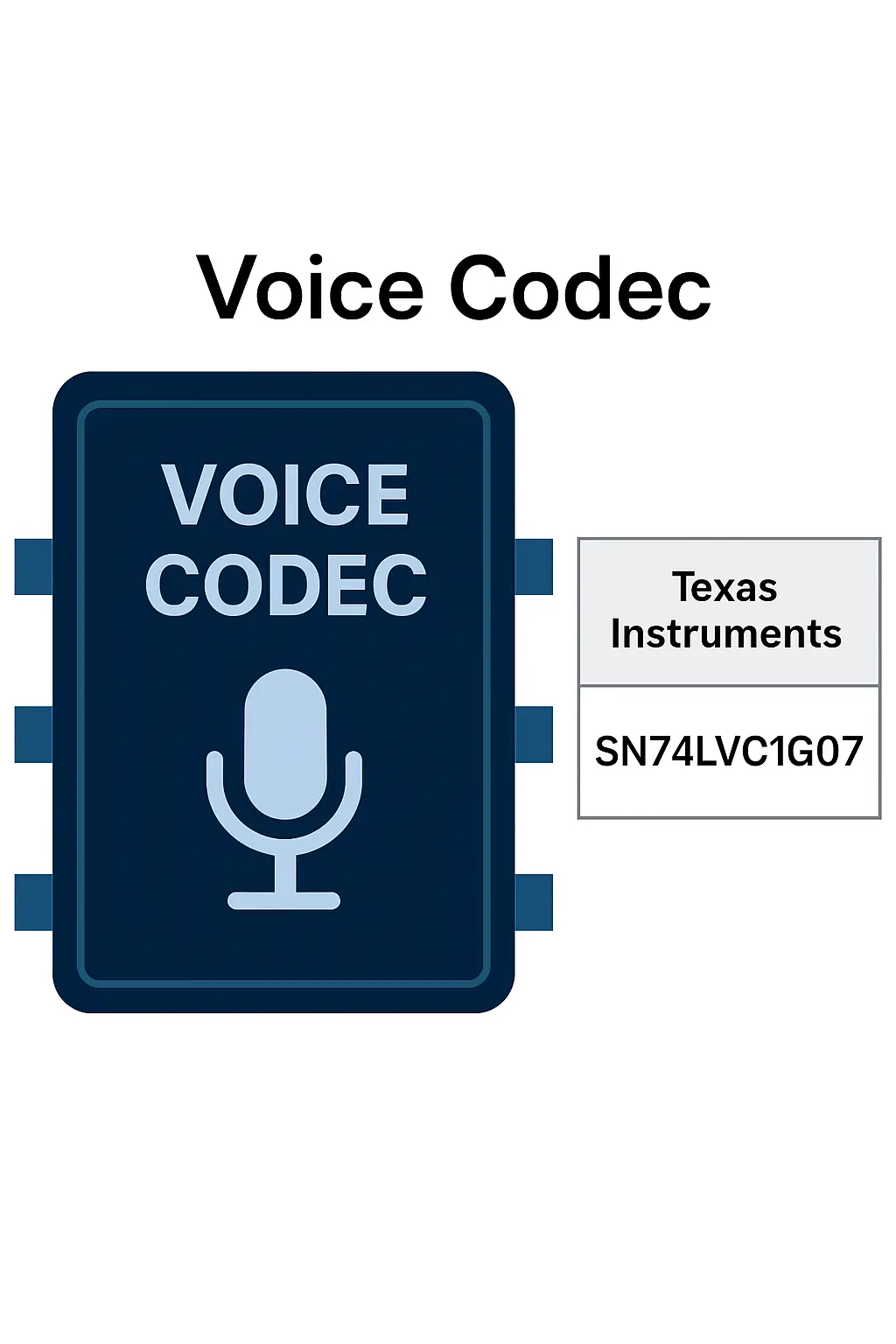Voice Codec
The Voice Codec is a critical component within the Infotainment & Digital Cockpit system of modern Automotive Electronics. It serves as the core technology for processing and transmitting voice signals, enabling seamless Voice / Gesture / HMI Input interactions. This module converts analog voice signals into digital data for processing by the vehicle's infotainment system, while also supporting high-quality audio output for in-car communication and entertainment.
Designed for automotive environments, the Voice Codec ensures clear and reliable voice recognition, even in noisy conditions. It supports advanced features such as hands-free calling, voice-activated commands, and integration with AI-powered assistants, enhancing driver safety and convenience. Its robust design allows it to operate efficiently under various temperature and electrical conditions, making it ideal for use in vehicles.
This technology is widely applied in smart car systems, where drivers can control navigation, music, and other functions through natural voice commands. It also plays a key role in improving user experience by offering intuitive human-machine interaction (HMI) solutions. The Voice Codec is essential for next-generation digital cockpits, supporting multi-modal input methods that combine voice, gesture, and touch controls.
In summary, the Voice Codec is a vital part of the automotive electronics ecosystem, enabling intelligent and safe in-vehicle interactions. Its application spans from basic voice control to advanced AI-driven infotainment systems, making it a cornerstone of modern connected car technology.
Details
Voice Codec

Related Parts
| Series Name | Description | Manufacturer Name | Attribute Description |
|---|---|---|---|
| Texas Instruments | Open-drain output, 1.65-V to 5.5-V VCC, 35 mA sink current, 2 ns propagation delay, 5 µA max ICC, operating temperature: -40°C to +125°C, available in SC70-5 and SOT-23-5 packages. |








.png?x-oss-process=image/format,webp/resize,h_32)










